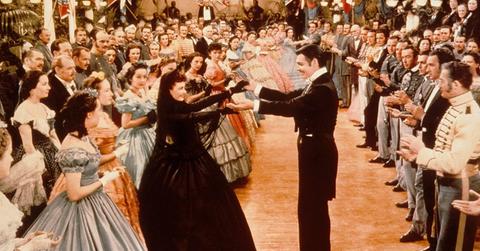
photo credit: imdb.com
HBO Max Pulls ‘Gone With the Wind’
By Jamie RolloJune 12 2020, Updated 2:36 p.m. ET
HBO Max has announced they will be removing the 1939 depiction of Margaret Mitchell’s Gone With the Wind for its racial insensitivity. For years, both the novel and the film has been criticized for romanticizing the Civil War-era south and slavery. While some people believe this is censorship, others believe it is only necessary given the current climate. HBO Max announced they plan to bring the movie back into their index, only this time with historical context and commentary to educate their subscribers.
Gone With the Wind follows the story of Scarlett O’Hara, the daughter of a Georgian plantation owner, through her romantic affairs and her experience of living during the Civil War and the Reconstruction Era. The novel inaccurately depicts the narrative of the victims of slavery and in a way, sugar coats the experience of the masses. Because of this, many critics consider the novel to be “revisionist history,” which makes it ironic that many people are arguing HBO’s actions as revisionist.
Filmmaker John Ridley wrote an op-ed for the Los Angeles Times urging HBO’s parent company WarnerMedia to take the film off of its index because it “romanticizes the Confederacy in a way that continues to give legitimacy to the notion that the secessionist movement was something more, or better, or more noble than it was – a bloody insurrection to maintain the ‘right’ to own, sell and buy human beings.”
HBO Max then announced they would pull the film and in a statement said, “Gone With the Wind is a product of its time and depicts some of the ethnic and racial prejudices that have, unfortunately, been commonplace in American society… These racist depictions were wrong then and are wrong today, and we felt that to keep this title up without an explanation and a denouncement of those depictions would be irresponsible.”
The relatively new streaming service now plans to bring the movie back to its catalogue only this time “with a discussion of its historical context and a denouncement of those very depictions.”

